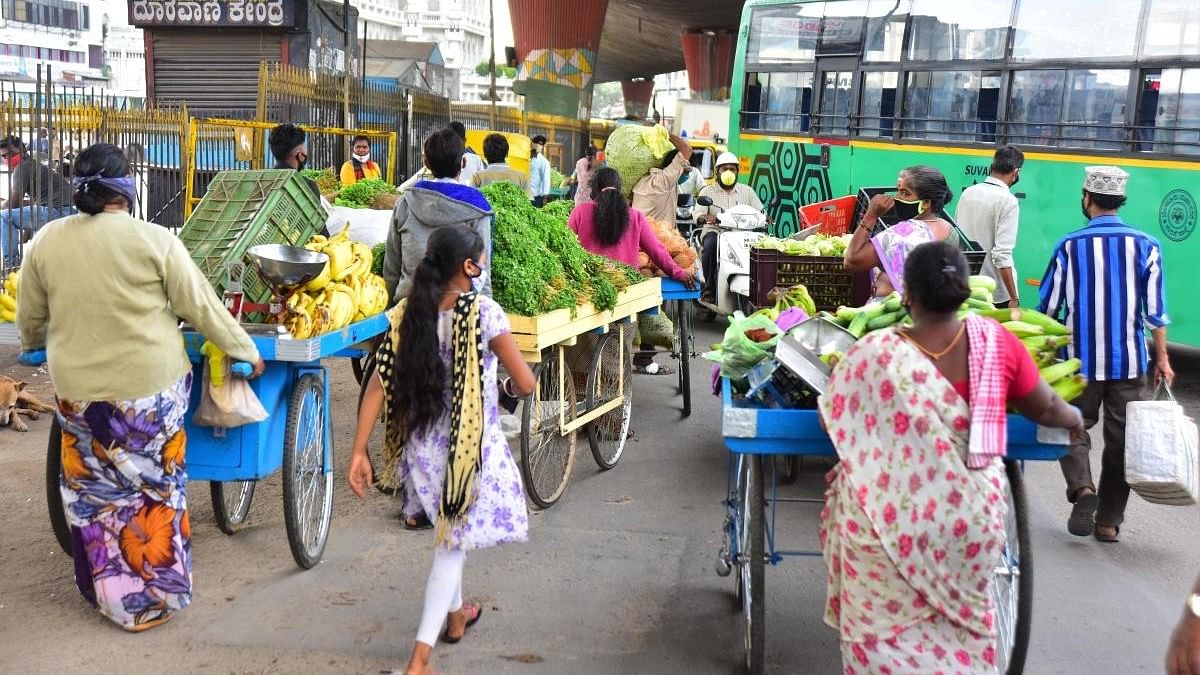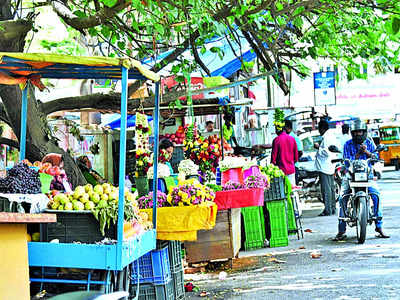As the Bruhat Bengaluru Mahanagara Palike (BBMP) commences its eviction drive, over 400 street vendors in Jayanagar face uncertainty and distress. The long-standing predicament between street vendors and pedestrians over space rights on footpaths has reached a critical juncture, igniting tension and highlighting the complex legal landscape. While vendors assert their right to continue business on the footpaths, BBMP officials emphasize the need to ensure pedestrian access remains unimpeded.

Source: DH
Full Story:
The ongoing dispute in Jayanagar encapsulates the conflicting perspectives between the street vendors and the BBMP. While BBMP officials maintain that street vendors cannot claim permanent rights to a specific operating location, vendors argue that they have been conducting business from the same space for decades, without causing inconvenience to the public. With the lack of a formalized town vending committee, the situation remains unresolved, leaving both parties in a state of uncertainty and apprehension.
The decision to conduct the eviction drive in Jayanagar market has triggered a wave of distress among the affected street vendors, many of whom received the eviction notice only recently, despite a prior notification from BBMP three months ago. The imminent displacement has left the vendors grappling with the prospect of losing their livelihoods, with no clear alternative or relocation plan offered by the authorities. The absence of a structured dialogue and town vending committees further compounds the challenges faced by the vendors, deepening the sense of helplessness and confusion.

Source: Bangalore Mirror
In response to the growing concerns, BBMP officials have clarified their stance, emphasizing that street vendors do not possess an inherent right to operate from a single location. While acknowledging the efforts to support vendors through various schemes, including the provision of loans and identification initiatives, the BBMP underscores the necessity for vendors to refrain from encroaching on footpaths and impeding pedestrian access. The expired licences and the absence of a comprehensive survey have prompted the BBMP to undertake an in-house vendor identification process and the subsequent formation of a town vending committee.
The current conundrum underscores the pressing need for collaborative efforts between the authorities and the street vendors to establish a coherent regulatory framework that addresses the concerns of both parties. As the eviction drive commences, the plight of the street vendors serves as a poignant reminder of the intricate balance between the rights of vendors and the public’s access to unobstructed pathways. Moving forward, the resolution of this issue necessitates a concerted effort to bridge the gap between policy implementation and the livelihood needs of the vendors, ensuring a more equitable and sustainable approach to urban street vending.



















































































